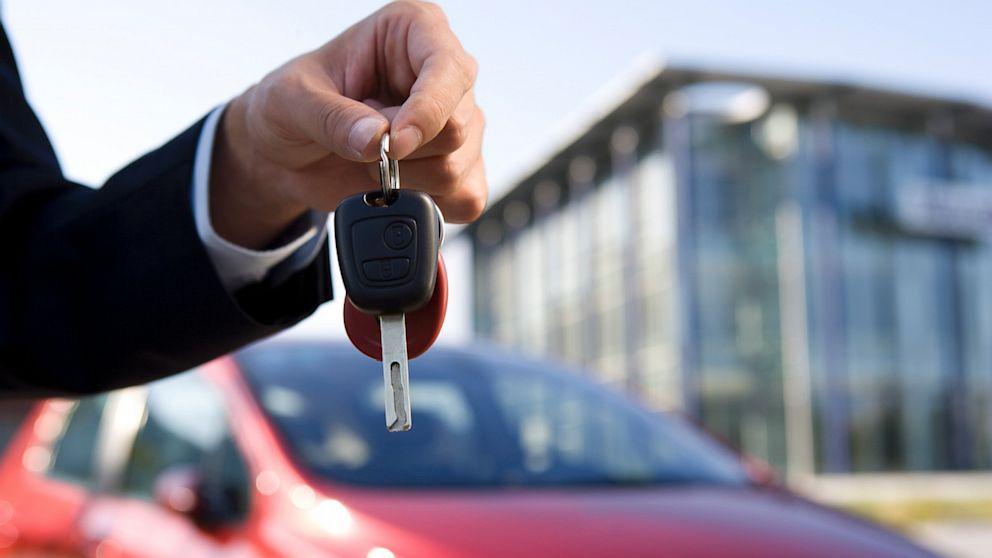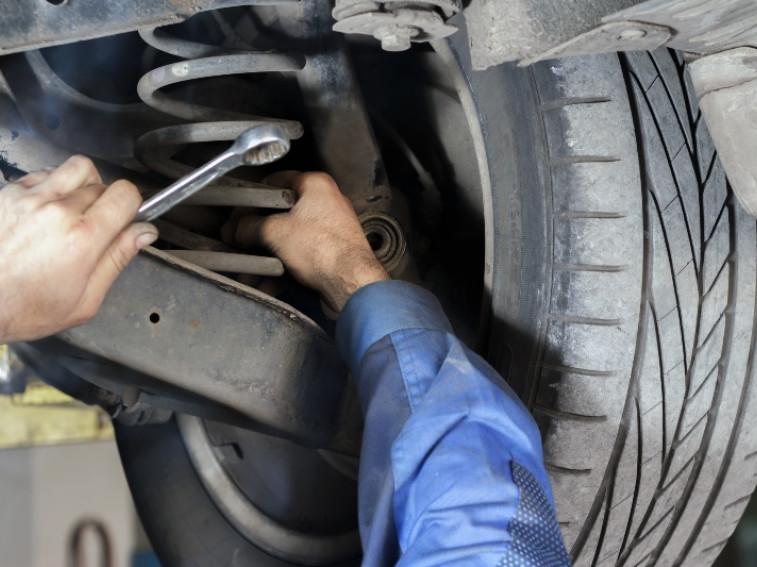How Fuel and Maintenance Costs Influence Car Purchase Decisions
By Sebastian Orellana
Updated Feb 17, 2024

If you're contemplating purchasing a car, don't overlook the long-term expenses of the vehicle, including fuel and maintenance costs. This comprehensive guide provides the knowledge you need to purchase a financially savvy car. Learn the significance of fuel efficiency, compare the expenses of different fuels, and delve into the regular and unexpected repairs different car types attract. Moreover, this article highlights other financial components, such as insurance costs, taxes, registration fees, and depreciation, that one shouldn't forget to account for in their decision. Furthermore, it provides case studies that illustrate how fuel and maintenance costs affect your car buying decisions. Also, we will give you some practical tips to keep these costs at bay after your purchase. Prepare for your next car purchase by being informed about the hidden ongoing expenses.
Table of Contents
One of the most significant considerations is fuel efficiency when evaluating the total cost of owning a vehicle. This attributes directly to the car's running costs, influencing your budget significantly over the years. In our modern society, with increasing environmental awareness and rising fuel prices, this is a crucial aspect that potential car owners must consider.
Fuel efficiency determines how far a car can travel per unit of fuel consumed. The more efficient a car is, the less fuel it consumes for the same distance, translating to lower costs for the driver. In perspective, even a small difference in fuel efficiency can lead to substantial cost savings in the long run, especially for individuals who use their cars regularly or for long journeys.
Choosing a fuel-efficient vehicle is also a step towards reducing a person's carbon footprint, aligning with a growing global environmental conscience. Many car manufacturers are now paying attention to this need, developing newer models with improved fuel efficiency and introducing electric and hybrid vehicles to the market, contributing to a sustainable environment.
READ: Factors That Influence the Market Price of EVs
Structuring Car Purchase Decisions: Fuel Costs

When purchasing a car, the cost can be a significant factor. However, the sticker price is not the only cost; buyers also need to consider the long-term expenses of maintaining and using the vehicle. Among these costs, fuel takes the bulk center stage. A car's fuel efficiency and fuel type can greatly affect the overall cost of ownership.
Considering Fuel Efficiency
Fuel efficiency is an important consideration for anyone considering your car purchase . This refers to the amount of energy that a car can extract from a certain amount of fuel. Most countries measure this in miles per gallon (MPG) or litres per 100 kilometers (L/100km). A car with a higher MPG or a lower L/100km value is more fuel-efficient, saving owners money over time.
In addition, certain types of vehicles tend to be more fuel-efficient than others. For example, hybrid cars use both a gasoline engine and an electric motor and can switch depending on conditions, resulting in less fuel consumption. Electric vehicles, meanwhile, do not use any gasoline at all.
Fuel efficiency has both environmental and economic implications. By choosing a more fuel-efficient vehicle, you reduce your carbon footprint, helping to combat climate change. Economically, you save on fuel costs, which can significantly increase over time. This might lead to your fuel-efficient car being a lot more cost-effective long term, despite possibly higher upfront costs.
Estimating Annual Fuel Costs Before Car Purchase
Estimating annual fuel costs can seem tricky, but it's relatively straightforward. The first step is to find out the fuel efficiency of the car you're considering buying; car manufacturers usually provide this information, and can also be found on various car review websites.
Once you have that figure, you can estimate your annual mileage. This is just how far you plan to drive in a year. If you don't know, you can use the average annual mileage for your country as a starting point.
The next step is to find the current fuel price in your area. With these figures, you can calculate the estimated annual fuel cost.
While this is just an estimation and actual costs may vary slightly, this gives you an idea of what to expect to spend on fuel each year.
Fuel Type Considerations: Gas vs. Diesel vs. Hybrid vs. Electric
Traditionally, most cars have used gasoline or diesel fuel. However, with technological advances, more options are available, including hybrid and electric vehicles (EVs).
Gasoline is the most common fuel type and is typically cheaper than diesel. However, diesel generally provides better fuel efficiency than gasoline, making it a more economical choice in the long run, especially for high-mileage drivers.
Hybrid cars use a combination of gasoline and electric power, which can make them more fuel-efficient than traditional cars. They can be a good choice if you mix city and highway driving, as they can switch between the two power sources to maximize efficiency.
Electric vehicles, meanwhile, use an electric motor powered by a battery that you charge by plugging it into an electrical source. While the electricity isn't free, it's often cheaper than gasoline or diesel, making EVs potentially more economical. Moreover, EVs are the most eco-friendly option, emitting zero tailpipe emissions.
However, modern electric vehicles' higher upfront costs and limited driving ranges (though improving rapidly) can be a drawback for some potential owners. Hybrid cars can pose a compromise solution until such issues are resolved with the development of battery technology.
In conclusion, while fuel costs can vary greatly depending on the type of vehicle and the fuel efficiency, considering fuel costs when purchasing a new car can save you a significant amount of money over the lifetime of your vehicle.
Structuring Car Purchase Decisions: Maintenance Costs

When making a car purchase, buyers usually pay close attention to the upfront cost, the car's make, model, and mileage, among other considerations. However, it is important not to overlook the long-term costs of owning a car, primarily its maintenance costs. These costs can significantly impact the total cost of ownership and should, therefore, factor significantly in your car purchase decision. We will explore regular maintenance requirements for different car types and calculate the costs of unexpected repairs. Lastly, we will understand the impact vehicle age and condition have on maintenance costs.
Understanding Regular Maintenance Requirements for Different Car Types
All cars require routine maintenance. This includes oil changes, tire rotation, brake pad replacements, and inspections. However, the amount and cost of this maintenance can vary greatly by the type and make of the vehicle.
For instance, electric cars have fewer moving parts than traditional gasoline vehicles, which often means fewer repair costs. Regular maintenance generally includes battery services, tire rotation, brake fluid change, and air conditioning service. However, they may require expensive battery replacement after several years.
On the other hand, diesel vehicles require regular maintenance such as oil and filter changes, fuel filter changes, and transmission service. The cost of diesel fuel is often higher than that of gasoline, and diesel vehicles may require more expensive, specialized parts when repairs are necessary.
Therefore, when considering a car purchase, it is essential to research the expected maintenance requirements for the particular make and model you are looking at, to ensure you are prepared for the ongoing costs.
Costs Associated with Unexpected Repairs
Regardless of your car type, there is always the potential for unexpected repairs. These can range from minor fixes like replacing a broken tail light to major repairs such as replacing an engine or transmission.
The cost of these repairs can be influenced by several factors, including the make and model of the car, the age of the car, your geographical location, and whether or not the car is still under warranty. Certain makes and models are known for their reliability and have fewer unexpected repair costs, while others may be more prone to issues and result in higher repair costs.
While it's impossible to predict every potential repair that a vehicle may need, there are resources available such as Consumer Reports that provide reliability ratings for different makes and models based on owner-reported information. This data can give you an idea of what types of repairs may be more or less likely for a given car and the associated costs.
Impact of Vehicle Age and Condition on Maintenance Costs
The age and condition of a car can have a significant impact on its maintenance costs. As cars age, parts tend to wear out and may need replacing. Furthermore, older vehicles may require more frequent and expensive repairs, particularly if they have not been well-maintained.
On the other hand, while a new car might have lower maintenance costs in the short term, there may be significant depreciation costs. In addition, even if relatively new, high-end makes and models might require expensive, exclusive parts and services, further driving up their maintenance costs.
Generally, well-maintained, reliable used cars can often offer a good balance between purchase price and ongoing maintenance costs. It's important to review the vehicle inspection report, maintenance history and have a trusted mechanic inspect the car before the purchase.
In conclusion, while the upfront price is a significant component of a car's cost, potential owners should not overlook the long-term implications. Maintenance costs, both regular and unexpected, and the vehicle's age and condition, can evolve into substantial expenses during the car's life. Equip yourself with as much information as possible to make a sound purchase decision.
Other Financial Considerations in Car Purchase Decisions
When purchasing a car, the first consideration is often the sticker price, arguably representing the most significant portion of the car's total cost. However, additional factors can influence the total cost of owning a car, and these factors are equally important when making a purchase decision. These include the cost of car insurance, taxes, and registration fees, and the car's depreciation and resale value.
Car Insurance Costs Before Car Purchase
After purchasing a car, it is mandatory in almost all states to insure your vehicle. The cost of your car insurance can considerably affect the total cost of owning your car. Several factors will determine your car insurance rates, including the type of car you purchase, its cost, its safety record, and the likelihood of theft.
It is worth noting how insuring a car isn't a one-time expense but a recurring one, meaning that you should budget for it as long as you own the car. Moreover, cars with advanced features and high-performance engines will often have higher insurance premiums. On the other hand, vehicles that are deemed safe and are less likely to be stolen can enjoy lower insurance rates. Therefore, it's prudent for potential buyers to check insurance rates for different car models before deciding.
READ: Is Fox Shocks Better Than Bilstein?
Taxes and Registration Fees
Taxes and registration fees are another considerable expense when buying a car. Depending on your location and the price of the car, the total cost for taxes and registration can add up to a significant amount. Taxes are based on the purchase price of the car and the tax rate in your state or city. Some areas also have additional local taxes for vehicles.
Registration fees vary from one state to another, often depending on the type of vehicle, its weight, and age. For instance, some states charge more for registering new cars than older vehicles. Once again, these are not one-time costs as registration must typically be renewed annually.
Depreciation and Resale Value
The depreciation of a car is another crucial consideration in the total cost of car ownership. Cars are depreciating assets, meaning that their value diminishes over time. However, different cars depreciate at varying rates. The brand, type, and model of the car, as well as its maintenance history and mileage, all influence the rate of depreciation.
Some cars lose their value faster than others. Thus, it's a good idea to consider the car's projected residual value if you plan to sell it. Luxury cars, for example, have a slower depreciation rate because they’re often built with higher-quality materials and advanced technology. Meanwhile, economy cars tend to depreciate more quickly.
When purchasing and owning a car, more than just the sticker price should be considered. Other costs like insurance, taxes, registration, and depreciation can add significantly to the cost of owning a car. By considering these factors, you can make a more informed and savvy financial decision.
Understanding the Impact of Fuel and Maintenance Costs on Car Purchase Decisions

Deciding to buy a vehicle is a significant financial commitment. Beyond the initial purchase price, prospective auto owners must also consider the ongoing expenses associated with ownership. Two of the most important continuing costs are fuel and maintenance. Although each vehicle may have similar ticket prices, the long-term expenditures can vary substantially. Understanding the impact these costs can have on the overall price of owning a vehicle can significantly aid consumers in making an informed purchase decision.
Fuel efficiency or consumption is critical to consider when buying a vehicle. A car with high fuel efficiency can lead to considerable savings over the vehicle's lifetime, particularly if you intend to log many miles. A gas-guzzling car can be incredibly costly despite an attractive upfront price. Thus, when considering the purchase decision, knowing and understanding the vehicle’s miles-per-gallon (MPG) can make a difference.
Maintenance is another long-term cost that can significantly influence a buying decision. Certain vehicles are notorious for their maintenance requirements. Some models require more frequent service, more expensive parts, or are more prone to specific problems that lead to ongoing expenses. In contrast, other vehicles are known to be dependable and require only minimal upkeep. Looking at a model's maintenance history and reputation can give you a sense of what to expect for ongoing costs.
Case Studies: How Fuel and Maintenance Costs Influence Car Purchase Decisions
Let's look at three case studies to illustrate further how fuel and maintenance costs influence the purchase decision.
Case Study 1: High Fuel Efficiency, Low Maintenance Vehicle
Our first case study involves a vehicle known for its high fuel efficiency and low maintenance requirements. This could be an economy car or a hybrid, but regardless, these vehicles often have lower ownership costs due to their fuel efficiency and infrequent, low-cost maintenance needs. However, be careful not to assume that the initial lower price tag necessarily means a budget-friendly choice. When factored in with fuel costs and maintenance, the lifetime ownership cost might be significantly less than that of a comparable vehicle with a lower retail price.
Case Study 2: High Performance, High Maintenance Vehicle
Next, we look at high-performance vehicles. Typically, these are cars with strong engines designed for speed and performance but often require high-octane fuel and have more expensive maintenance procedures. Given these vehicles' power and performance, one might expect to pay a premium. However, the steady, high-cost of maintenance, coupled with a probable higher fuel consumption, tends to make these vehicles much more costly in the long run. Prospective buyers should carefully evaluate whether the performance is worth the extra cost.
Case Study 3: Older Vehicle with High Maintenance Costs
Lastly, we consider older vehicles known for high maintenance costs. While these cars typically have lower upfront costs, they often require ongoing maintenance due to their ages. These ongoing maintenance expenses can quickly add up, and if a significant repair is needed, it could entirely negate the initial savings of the lower purchase price. Furthermore, older vehicles are also likely to be less fuel-efficient, leading to higher fuel costs. Therefore, when considering an older vehicle, it's crucial to factor in potential repair and fuel costs.
Techniques for Reducing Fuel and Maintenance Costs After Car Purchase

In these times when every penny counts, finding ways to reduce costs is more important than ever. One area many people frequently overlook when seeking new ways to save is the effective utilization of a purchase. Whether you have recently bought your dream car or upgraded your existing motor's lifespan, there are several techniques that you can utilize to reduce fuel and maintenance costs after your initial purchase.
Improving Fuel Efficiency through Regular Maintenance and Driving Habits
Firstly, improving fuel efficiency is paramount to minimizing overall vehicle expenses, and one effective way to achieve this is by instilling regular maintenance into your ownership routine. Investing in proper vehicle care usually yields dividends in the long term as your vehicle tends to perform better and consume less fuel.
Two crucial aspects are properly inflated tires and properly maintained engine oil. Tires that are adequately inflated causes the vehicle to consume less energy and, indirectly, less fuel due to decreased rolling resistance. Similarly, using the appropriate engine oil can also play a vital role in reducing frictional resistance, increasing the vehicle’s mileage.
Another central aspect of improving fuel efficiency is our driving habits. Rapid acceleration, frequent breaking, and excessive speeding contribute to higher fuel consumption. Employing disciplined driving techniques and habits can drastically reduce your vehicle's overall fuel costs. Implementing habits such as avoiding last-minute braking, maintaining a consistent speed, and limiting excessive loads can increase your car's miles per gallon, thus reducing the number of trips to the gas station.
READ: Best Suspension Kits: A Comprehensive Guide
Reducing Maintenance Costs through Preventative Measures and DIY
Secondly, as every car owner knows, maintenance costs can also constitute a significant part of a car's annual budget. A proactive way to keep these costs down is through preventative measures.
Routine maintenance plays an essential role, as catching and fixing minor glitches before they mushroom into more significant issues can save considerable costs and headaches in the long run. Consulting the vehicle owner's manual for the manufacturer's recommended maintenance schedule often lays the groundwork for effective preventative maintenance measures.
Beyond delegation to skilled professionals, you can also undertake several preventative maintenance tasks yourself, contributing to significant savings on labor costs. Simple tasks suitable for DIY include checking for and topping up essential fluids like oil, coolant, and brake fluids, keeping up with wheel alignment, regularly replacing air filters, and keeping tire pressure optimal.
However, while venturing into the DIY world, it is important not to bite off more than you can chew and to seek professional help for more complex technical issues. It must also be noted that these DIY efforts are not meant to substitute for regular mechanic checks but rather to supplement them.
By incorporating these simple yet effective techniques into your routine, you can significantly stretch your purchase’s efficiency and longevity while minimizing fuel and maintenance costs in the long run.
